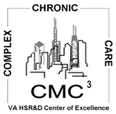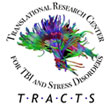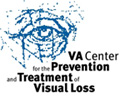Research Programs
VA ORD-Wide Programs |
|---|
Program for Research Integrity Development & Education (PRIDE) |
The mission of the Program for Research Integrity Development & Education is to protect participants in VA human research. PRIDE is responsible for all policy development and guidance, and all training and education in human research protection throughout the VA.
|
Technology Transfer Program (TTP) |
The Technology Transfer Program serves the American public by translating the results of worthy discoveries made by VA employees into practice. The program educates inventors concerning their rights and obligations, rigorously evaluates all inventions, obtains patents, and assists in the commercialization of new products.
|
Cooperative Studies Program (CSP) |
The VA Cooperative Studies Program is the Division of VA Research and Development that is responsible for the planning and conduct of large multicenter clinical trials in the Department of Veterans Affairs.
|
Million Veteran Program (MVP) |
The VA Million Veteran Program (MVP) is a national, voluntary research program conducted by the Department of Veterans Affairs Office of Research & Development.
|
Health Disparities |
Health Disparities: VHA has a long-standing portfolio of research addressing the challenges posed by minority health care needs and the disparities that arise in healthcare delivery, access, and quality.
|
QUERI |
VA/HSR&D's Quality Enhancement Research Initiative (QUERI) works to improve the quality of healthcare for veterans by implementing research findings into routine clinical practice. |
Biosafety & Biosecurity |
The VA Office of Research and Development (ORD) has developed its Biosafety & Biosecurity Program to ensure the safety of individuals involved with research at Veterans Health Administration research laboratories and to protect the environment. The program strives to ensure the security and safety of all individuals, resources, information, biological agents, chemical agents and radiation materials/sources found within research laboratories.
|
VA Specimen Research and Biobanking Program |
The VA Specimen Research and Biobanking Program makes tissue samples available for research on illnesses in Veterans.
|
Animal Research |
Animal Research: The primary mission of the CVMO's office is to provide professional and administrative guidance and support to VA field animal care and use programs. This is accomplished by phone and email consultations, periodic training sessions, and development of web-based support systems.
|
REQUIP |
The VA Research Equipment Quick Use Initiative Program (REQUIP) is responsible for the redistribution of nonexpendable research equipment including equipment for the care and use of animals.
|
Women's Health |
VA R&D Women's Health was established as a research priority to develop new knowledge about how to best provide for the health and care of women veterans. VA has built an increasingly productive portfolio of biomedical, clinical, rehabilitation and health services research since the early 1990's.
|
top |
Funded Field Centers |
|---|
|
HSR&D Centers of Excellence and Resource Centers
(click for more detail about HSR&D's CoEs, Resource Centers, and REAPs) |
 |
Ann Arbor, MI
The Center for Clinical Management Research focuses on clinical practice management issues for those conditions that account for a large proportion of the costs and preventable morbidity and mortality in VHA. |
 |
Bedford, MA
The Center for Health Quality, Outcomes, and Economic Research concentrates on four domains: health quality assessment, outcomes measurement, health economics, and health statistics. Across these domains, researchers develop innovative methodologies and models of care to provide the most effective, efficient and appropriate care to our nation’s veterans.
|
 |
Boston, MA
The Center for Information Dissemination and Education Resources (CIDER) is a VA Health Services Research and Development Service (HSR&D) national Resource Center. Established in June 2004, CIDER's mission is to improve the health and care of veterans by disseminating important HSR&D findings and information to policy makers, managers, clinicians, and researchers throughout VA and the broader health care community. |
 |
Boston, MA
The Center for Organization, Leadership and Management Research identifies organization, leadership, and management practices,
evaluates the effects of leadership development programs,
develops a database that captures the characteristics of individual VA medical centers,
and Veterans Integrated Service Networks as a whole. |
 |
Durham, NC
The Center for Health Services Research in Primary Care focuses on ambulatory care, women's health, geriatrics, and epidemiology of chronic disease. |
 |
Hines, IL
The Center for Management of Complex Chronic Care focuses on pharmacotherapeutics, health economics and value in health care, and behavioral interventions and health communications as they relate to complex chronic care.
|
 |
Hines, IL
The VA Information Resource Center (VIREC) was established in July 1998 to support researchers who use databases and informatics by providing an infrastructure of database and informatics experts, customer service, expert advice, information products, and Web technology to VA researchers and others.
|
 |
Houston, TX
The Houston Center for Quality of Care and Utilization Studies focuses on quality of care assessment, determinants of health services utilization, translational (implementation) research, health disparities,
chronic care models, and health decision making. |

|
Indianapolis, IN
The Center of Excellence on Implementing Evidence-Based Practice generates new knowledge about best practices, identifies organizational, environmental and provider-based aspects of health systems, designs and test health system interventions, makes maximal use of research evidence in routine care;
and facilitates the use of research in the dissemination of best practices. |

|
Little Rock, AR
The goals of the Center for Mental Healthcare and Outcomes Research are: to
improve the quality of specialty mental health care for Veterans, to improve access to and engagement in care for Veterans with untreated mental health and substance use disorders in the community, to improve outcomes of mental health care for Veterans, and to develop and test interventions to improve access, engagement, quality, outcomes, and implementation strategies to promote widespread adoption and sustainability of cost-effective interventions. |
 |
Menlo Park, CA
The Health Economics Resource Center is a national center that assists VA researchers in assessing the cost-effectiveness of medical care, evaluating the efficiency of VA programs and providers, and conducting high-quality health economics research. |
 |
Minneapolis, MN
The Center for Chronic Disease Outcomes Research focuses on evidence-based practice for improving outcomes in chronic disease, evaluating models for managing chronic diseases, and
develops and assesses innovative models for managing chronic disease. |
 |
Palo Alto, CA
The Center for Health Care Evaluation improves the delivery of health care services, patient decision aids,
screening procedures, clinical decision-making, evaluates treatment for substance abuse and psychiatric disorders,
evaluates treatment for older veterans, and health services research methodology. |
 |
Philadelphia and Pittsburgh, PA
The Center for Health Equity Research and Promotion develops and supports research, education, policy making, and dissemination that focuses on disparities related to race/ethnicity, socioeconomic status, and comorbid illness in patients with conditions prevalent in the veteran population, such as cardiovascular disease, HIV, and alcohol and substance abuse
|
 |
Seattle, WA
The Northwest Center for Outcomes Research in Older Adults focuses on management of chronic disease,
preservation of independence of elderly and disabled veterans, innovative models of care, and new methods of health services research.
|
 |
Sepulveda, CA
The Center for the Study of Healthcare Provider Behavior carries out a program of research focused on healthcare provider behavior and its determinants, and is committed to increased understanding of the features of the environment, organization, practice, provider, patient and encounter that influence healthcare provider practices and ultimately health outcomes. |
 |
Tampa, FL
The Center for Maximizing Rehabilitation Outcomes combines traditional health services and rehabilitation research approaches to advance the science of rehabilitation across multiple Veteran groups including Iraqi and Afghanistan servicemen and women, older adults and persons with spinal cord injury, amputations, and polytrauma. The focus is early detection and treatment of Veterans with subtle, delayed-onset, and overlapping symptoms, development of sensitive and clinically meaningful measurement tools, and testing rehabilitation interventions to promote safety, function, activity, community participation, and QOL, while reducing healthcare utilization and cost.
|
top |
| RR&D Centers of Excellence and REAPs |
 |
Atlanta, GA
The Center of Excellence for Aging Veterans with Vision Loss works to improve function, independence, and quality of life of aging veterans with visual disabilities and those acquiring visual disabilities. The center focuses on vision, cognition and mobility research, and research that highlights the interaction among these areas.
|
 |
Baltimore, MD
The VA RR&D Maryland Exercise and Robotics Center of Excellence (MERCE) was established in 2005 and is located in the VA Maryland Health Care System in Baltimore. The mission of MERCE is to develop and test new rehabilitation therapies to improve physical function, fitness, and cardiovascular health for Veterans with stroke and other neurological disability conditions. Our research models emphasize motor learning and progressive task-practice to improve gait, balance, and upper extremity function, exercise rehabilitation to improve fitness, skeletal muscle structure and function, cardiovascular health and related elements of cognitive function, and principals of engineering and biomechanics to advance robotics assisted rehabilitation.
|
 |
Boston, MA
The Translational Research Center for Traumatic Brain Injury and Stress Disorders (TRACTS) promotes multidisciplinary research aimed at improving our understanding of the complex cognitive and emotional problems faced by OEF/OIF veterans. The Center focuses on innovations in the diagnosis of mild TBI and in the development of treatments that target the combined effects of TBI and stress-related disorders.
Contact: Mary.Fitzgerald@va.gov, 857-364-4026
|
|
Bronx, NY
The Center of Excellence on the Medical Consequences of Spinal Cord Injury is studying the use of anabolic pharmaceuticals, including anabolic steroids, to treat secondary disabilities of SCI. SCI, which affects more than 40,000 veterans nationwide, often is associated with problems related to muscular function, breathing, bowel movements, and cardiovascular health.
|
 |
Cleveland, OH
The Center for Advanced Platform Technology (APT) develops advanced technologies that serve the clinical needs of veterans with motor and sensory deficits and limb loss to provide clinician-researchers within the VA with new tools for rehabilitation, treatment and scientific inquiry that lead to independence and enhanced societal participation.
|
 |
Cleveland, OH
The Center for Functional Electrical Stimulation investigates functional electrical stimulation (FES), a technology that relies on controlled electrical current to activate paralyzed muscles to return full or partial physical function to individuals with disabilities. Accomplishments include FDA approval of a hand grasp system and commencement of clinical trials of an advanced bladder/bowel management system. |
 |
Gainesville, FL
Shaping the future of neurorehabilitation through treatment evolution and innovation, unique teams of scientists at the Brain Rehabilitation Research Center (BRRC) conduct basic and applied research on neuroplasticity to increase the effectiveness of treatments for motor and cognitive impairments caused by neurologic injury or disease. The long-term goal of the BRRC is to determine how neuroplasticity can be maximized by neurorehabilitation for specific conditions or persons to obtain complete restoration of function.
|
 |
Iowa City, IA
Research at the Center for the Prevention and Treatment of Visual Loss focuses on the early detection of potential blinding disorders of the Veteran and general population, including retinal disease, glaucoma, and traumatic brain injury. We are testing new ways of determining the earlier signs of progression and response to treatment; and developing new treatment innovations. Areas of exploration include the use of telemedicine and computer aided diagnosis for the detection of eye disease, as well as neuroprotection and neurotrophic growth factors for prevention and healing.
|
| Center for Tissue Regeneration, Repair, and Restoration (CTR3) |
Palo Alto, CA
The Center for Tissue Regeneration, Repair, and Restoration (CTR3) is focused on the development of novel treatments for chronic injuries in the neuro-musculo-skeletal axis. The areas of expertise within the Center are in the fields of stem cell biology and biomaterials, and our mission is to merge regenerative medicine with rehabilitative medicine for restoration of tissue structure and function using both biological and biomedical engineering technologies. Injuries that are among our main focus are TBI, spinal cord injury, volumetric muscle loss and segmental bone defects.
|
 |
Pittsburgh, PA
The Center of Excellence in Wheelchairs and Associated Rehabilitation Engineering strives to improve the mobility and function of people with disabilities through advanced engineering in clinical research and medical rehabilitation. They have made important contributions towards the design of wheelchairs, seating systems, transportation systems, and novel approaches to the delivery of assistive technology.
|
 |
Portland, OR
The National Center for Rehabilitative Auditory Research (NCRAR) is the only VA National Center of Excellence dedicated to addressing the needs of Veterans with hearing and auditory system disorders.
The NCRAR's cross-disciplinary program encompasses diagnosis and assessment, rehabilitation, and prevention. Specific research areas include aging and the auditory system, auditory rehabilitation, ear-brain system, hearing aids, hearing conservation, ototoxicity, tinnitus, traumatic brain injury (TBI), and vestibular evaluation and rehabilitation.
The Center also trains and mentors new scientists, disseminates information to clinicians who assess and treat Veterans with hearing disabilities, and serves as an educational and scientific resource for Veterans and the community.
|
 |
Seattle, WA
Our center's mission is to unite investigators in diverse fields in basic and clinical research to improve the quality of life and functional status of veteran amputees and veterans who are at risk for amputation. The two general areas of research are Limb Loss Prevention and Prosthetic Engineering. Our focus is on translational research with a three to five year timeline for clinical impact.
For more information please go to http://www.amputation.research.va.gov/
|
 |
Tampa, FL
The Center for Maximizing Rehabilitation Outcomes combines traditional health services and rehabilitation research approaches to advance the science of rehabilitation across multiple Veteran groups including Iraqi and Afghanistan servicemen and women, older adults and persons with spinal cord injury, amputations, and polytrauma. The focus is early detection and treatment of Veterans with subtle, delayed-onset, and overlapping symptoms, development of sensitive and clinically meaningful measurement tools, and testing rehabilitation interventions to promote safety, function, activity, community participation, and QOL, while reducing healthcare utilization and cost.
For more information, please go to
http://www.cmro.research.va.gov/
|
| West Haven Center for Restoration of Nervous System Function |
West Haven, CT
The goal of West Haven Center for Restoration of Nervous System Function is to develop new therapeutic approaches that will improve function and quality of life of Veterans with injuries of the nervous system. Our Center's focus, initially on SCI, MS, and nerve injury, has expanded to include major emphasis on neuropathic pain after traumatic nerve injury and traumatic limb amputation, and pain after injuries such as burn.
Our Center brings together multiple research teams in a focused, multidisciplinary effort to capitalize on the "molecular revolution". We are investigating, for example, why some Veterans experience intractable neuropathic pain after nerve injury, while others with similar injuries do not; and why some Veterans with neuropathic pain respond to pain pharmacotherapy while others do not. We want to harness this molecular knowledge to develop new and more effective approaches to therapy.
For more information, please visit http://medicine.yale.edu/cnrr/about/index.aspx
|
RR&D REAP:
Biological Thearapeutic to Restore Nervous System Function
|
Baltimore, MD
Biological Thearapeutic to Restore Nervous System Function seeks to develop effective neurorestorative strategies to treat neurological conditions (e.g., Parkinson's disease). To meet this objective, research activities include stem cell therapy, gene therapy to include gene manipulation at the transcription factor level, and targeted neurotoxin therapy for the prevention of muscle disuse atrophy.
Contact: Paul Fishman, MD, PhD pfishman@umaryland.edu 410-605-7000 ext. 6612
|
RR&D REAP:
 |
Gainesville, FL
The mission of the Rehabilitation Outcomes Research Center (RORC) is to conduct interdisciplinary research that improves the health, function, and community reintegration of Veterans challenged by disability and limited access to health-related services. RORC investigators study how to improve the accessibility, design, administration, management, and cost of care; use state-of-the-science methodologies to develop new and more precise measures across the continuum of care; and evaluate innovative systems and processes of care, including the psychosocial aspects of recovery, informal caregiving, and community health extension and reintegration. The RORC is the only Research Enhancement Award Program supported by core funding from both the Health Services Research and Development and Rehabilitation Research and Development services. The RORC is academically affiliated with the University of Florida.
Contact: William Mann, PhD William.mann@va.gov 352.376.1611
|
RR&D REAP:
 |
Mountain Home, TN
The mission of the Auditory and Vestibular Dysfunction Research Enhancement Award Program is to improve the quality of life for Veterans with hearing and balance disorders. Our research aims to advance the knowledge of these disorders and to improve best clinic practices for the assessment and rehabilitation of hearing and balance function in Veterans and the community at large.
Contact: Richard H. Wilson, Ph.D. Richard.Wilson2@va.gov 423-926-1171 Ext. 7551
|
RR&D REAP:
Multimodal Strategies for Improving Recovery from Brain Injury |
San Francisco, CA
The San Francisco VA RR&D REAP is evaluating multimodal strategies for improving recovery from brain injury. The studies use animal models of stroke and traumatic brain injury to evaluate effects of anti-inflammatory agents, neurotrophic receptor agonists, and physical therapy on long-term functional and anatomical outcomes. Our aim is to identify therapeutic combinations with additive or synergistic effects. The studies are designed as pre-clinical studies, using treatment modalities that are feasible for use in patients and outcome measures relevant to long-term functional recovery.
Contact: Raymond A. Swanson, M.D. raymond.swanson@va.gov 415 750-2011
|
top |
|